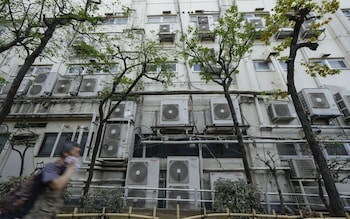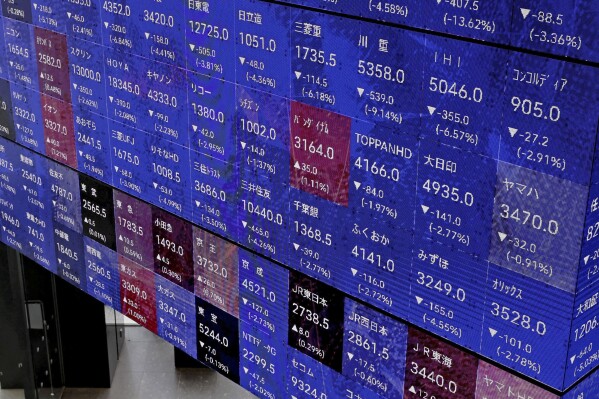BANGKOK (AP) — China’s powerful Politburo has endorsed the ruling Communist Party’s long-term strategy for growing the economy by encouraging more consumer spending and weeding out unproductive companies to promote “survival of the fittest.”
A statement issued after the meeting of the 24 highest leaders of the party warned that coming months would be tough, perhaps alluding to mounting global uncertainties ahead of the U.S. presidential election in November.
“There are still many risks and hidden dangers in key areas,” it said, adding that the tasks for reform and stability in the second half of the year were “very heavy.”
The Politburo promised unspecified measures to restore confidence in financial markets and boost government spending, echoing priorities laid out by a wider meeting of senior party members earlier in July. After that gathering, China’s central bank reduced several key interest rates and the government doubled subsidies for electric vehicles bought to replace older cars as part of the effort to spur growth.
The Politburo’s calls to look after low- and middle-income groups reflect pledges to build a stronger social safety net to enable families to spend more instead of socking money away to provide for health care, education and elder care. But it provided no specifics on how it will do that.
“This sounds promising on paper. But the lack of any specifics means it is unclear what it will entail in practice,” Julian Evans-Pritchard of Capital Economics said in a commentary.
The party’s plans for how to improve China’s fiscal policies at a time of burgeoning local government debt were “short on new ideas,” he said.
Instead, the emphasis is on moving faster to implement policies such as the government’s campaign to convince families to trade in old cars and appliances and redecorate their homes that includes tax incentives and subsidies for purchases that align with improved efficiency and reducing use of polluting fossil fuels.
China’s economy grew at a 4.7% annual rate in the last quarter after expanding 5.3% in the first three months of the year. Some economists say the official data overstate the rate of growth, masking long-term weaknesses that require broad reforms to rebalance the economy away from a heavy reliance on construction and export manufacturing.
Under leader Xi Jinping, China has prioritized developing industries using advanced technologies such as electric vehicles and renewable energy, a strategy that has made the country a leader in some areas but also led to oversupplies that are now squeezing some manufacturers, such as makers of solar panels.
The Politburo’s statement vowed support for “gazelle enterprises and unicorn enterprises,” referring to new, fast-growing companies and high-tech start-ups. It warned against “vicious competition” but also said China should improve mechanisms to ensure “survival of the fittest” and eliminate “backward and inefficient production capacity.”
The party has promised to help resolve a crisis in the property sector, in part by encouraging purchases of apartments to provide affordable housing and to adapt monetary policy to help spur spending and investment.
But the document issued Tuesday also highlighted longstanding concerns. The countryside and farmers need more support to “ensure that the rural population does not return to poverty on a large scale,” it said.
It also condemned what analysts have said is widespread resistance to fresh initiatives, saying that “formalism and bureaucracy are stubborn diseases and must be corrected” and warning that economic disputes should not be resolved by “administrative and criminal means.”
Chinese markets have not shown much enthusiasm for the policies outlined in recent weeks. On Tuesday, the Hong Kong benchmark Hang Seng index sank 1.4%, while the Shanghai Composite index lost 0.4%. The Hang Seng has fallen 4.3% in the past three months while Shanghai’s index is down 7.3%.
Based in Bangkok, Kurtenbach is the AP’s business editor for Asia, helping to improve and expand our coverage of regional economies, climate change and the transition toward carbon-free energy. She has been covering economic, social, environmental and political trends in China, Japan and Southeast Asia throughout her career.Disclaimer: The copyright of this article belongs to the original author. Reposting this article is solely for the purpose of information dissemination and does not constitute any investment advice. If there is any infringement, please contact us immediately. We will make corrections or deletions as necessary. Thank you.



